May 26 – 28, 2016
| Schedule | Public Events | Reports |
Introduction
Digital media is transforming our daily lives while also shifting the terrain of East Asia Studies. Today, as education moves toward online platforms and newspapers are replaced by blogs, we are experiencing a change not unlike the one faced by our counterparts in medieval East Asia when print took hold amid a strong and enduring culture of manuscripts. Lacking a central authority, today we produce, edit, and distribute online texts that in their fluidity recall the hand-copied productions of our predecessors. At the same time, the printed book, particularly the printed codex, presaged some fundamental revolutions brought about by the internet-based “hypermedia”: an expandable network of sharing and distributing information stored in and transmitted through a specific medium.
The invention of print technology in seventh to eighth-century China and its gradual emergence in other parts of the world brought new access to texts and reading practices, while manuscripts continued to be an important medium of transmission in East Asian religion, art, and literature. The challenges brought by new and competing technologies in medieval Asia can be paralleled with current concerns about the place of digital media in our lives. The explosion of electronic technology has given rise to anxieties—about, for example, the ways genuine “learning” is to be understood in the internet age and pre-existing media of knowledge (such as books) are received—that are not so different from the ones confronted with the emergence of printing in East Asia.
Although the histories of manuscript and print technologies in China, Korea, and Japan have much to teach us, no scholarly effort has yet been made to consider the impact of manuscript and print cultures in East Asia and how such examples may act as harbingers for developments in the digital age. We will build on the work of cultural historians, researchers of religious history, art historians, and literary scholars in considering the larger implications of East Asian historical reading and writing practices on our understanding of the present. The focus on writing and material culture complements new work being done on script in Asia and the spread of classical Chinese (or Literary Sinitic) as a shared language within premodern East Asian religious and literary cultures.
While considering reading, writing, and media today alongside Asian traditions of the past, we will also look ahead toward ways of preserving and transmitting the past, including demonstrations of digitization in the fields of education, library studies, journalism, history, literature, and religion. The roundtable will bring scholars, curators, librarians, community leaders, and policymakers into conversation to examine an array of approaches and technologies.
Participants
 Jinhua Chen
Jinhua ChenPrincipal Investigator and Professor of East Asian Buddhism, Department of Asian Studies at University of British Columbia, Canada
 Christina Laffin
Christina LaffinPrincipal Investigator and Associate Professor of Classical Japanese, Department of Asian Studies at University of British Columbia, Canada
 Jessica Main
Jessica MainAssistant Professor, Department of Asian Studies at University of British Columbia, Canada
 Michael Bourne
Michael BournePoet, Writer, and Editor in Vancouver, Canada
 Imre Galambos
Imre GalambosAssistant Professor, Department of Asian Studies at University of British Columbia, Canada
 Michael Friedrich
Michael FriedrichProfessor at the Numata Center for Buddhist Studies at the University of Hamburg, Germany
 James Robson
James RobsonProfessor in the Department of East Asian Languages and Civilizations at Harvard University, USA
 Peter Kornicki
Peter KornickiEmeritus Professor of Japanese Studies in the Faculty of Asian and Middle Eastern Studies at the University of Cambridge, UK
 Bruce Rusk
Bruce RuskProfessor in the Department of Asian Studies at University of British Columbia, Canada
 Lewis Lancaster
Lewis LancasterEmeritus Professor in the Faculty of East Asian Languages and Cultures at the University of California-Berkeley, USA
 Sinae Park
Sinae ParkAssistant Professor of Premodern Korean Literature in the Department of East Asian Languages and Civilizations at Harvard University, USA
 Barend ter Haar
Barend ter HaarProfessor of Chinese Studies at the University of Oxford, UK
 Ross King
Ross KingProfessor and Head of Department of Asian Studies at the University of British Columbia, Canada
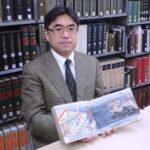 Sasaki Takahiro
Sasaki TakahiroProfessor at the Institute of Oriental Classics at Keio University, Japan
 Naomi Kasumi
Naomi KasumiAssociate Professor of Fine Arts, Director of the Digital Design Program, and Associate Appointment in the Asian Studies Program at Seattle University, USA
 Katherine Kalsbeek
Katherine KalsbeekActing Head of Rare Books and Special Collections at he Irving K. Barber Learning Centre at University of British Columbia, Canada
 Eugene Wang
Eugene WangAbby Aldrich Rockefeller Professor of Asian Art in the Department of History of Art & Architecture at Harvard University, USA
 Saeko Suzuki
Saeko SuzukiTateuchi Cataloguer for Japanese Retrospective Conversion at the East Asia Library at University of Washington, USA
 Mikael Adolphson
Mikael AdolphsonProfessor of Japanese Cultural Studies at the University of Alberta, Canada
 Stephen Teiser
Stephen TeiserD.T. Suzuki Professor in Buddhist Studies, Princeton University
 Yong Wang
Yong WangDean of Japanese Studies at Gongsang University of Zhejiang and Professor at Fudan University in Shanghai, China
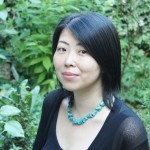 Fuyubi Nakamura
Fuyubi NakamuraAsia Curator at Museum of Anthropology, University of British Columbia, Canada
 Mimi Yiengpruksawan
Mimi YiengpruksawanProfessor of History of Art, Buddhist Art and Icongraphy, and Modern Japanese Art at Yale University, USA
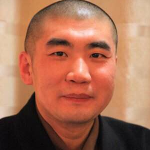 Ru Zhan
Ru ZhanProfessor at Peking University in Beijing, China; Mount Kuaiji Buddhist Association
 Joshua Mostow
Joshua MostowProfessor of Asian Studies at University of British Columbia; Research focusing on the reception and appropriation of classical Japanese court culture by succeeding generations
 Shirin Eshghi
Shirin EshghiInterim Scholarly Communications Librarian and Japnese Language Librarian at the University of British Columbia
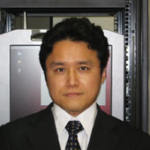 Kiyonori Nagasaki
Kiyonori NagasakiSenior Fellow at the International Institute for Digital Humanities in Tokyo, Japan
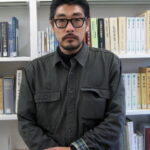 Toru Tomabechi
Toru TomabechiSenior Fellow at the International Institute for Digital Humanities in Tokyo, Japan
Sponsors
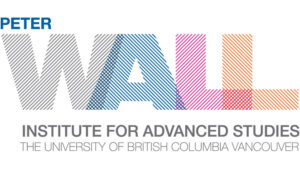
Peter Wall Institute for Advanced Studies at the University of British Columbia (PWIAS)
Centre for Japanese Research (CJR)
UBC Buddhist Studies Forum
Mount Kuaiji Buddhist Association
Contact
Jinhua Chen
jinhua.chen@ubc.ca
Roundtable venue: Peter Wall Institute for Advanced Studies
6331 Crescent Road, Vancouver BC








